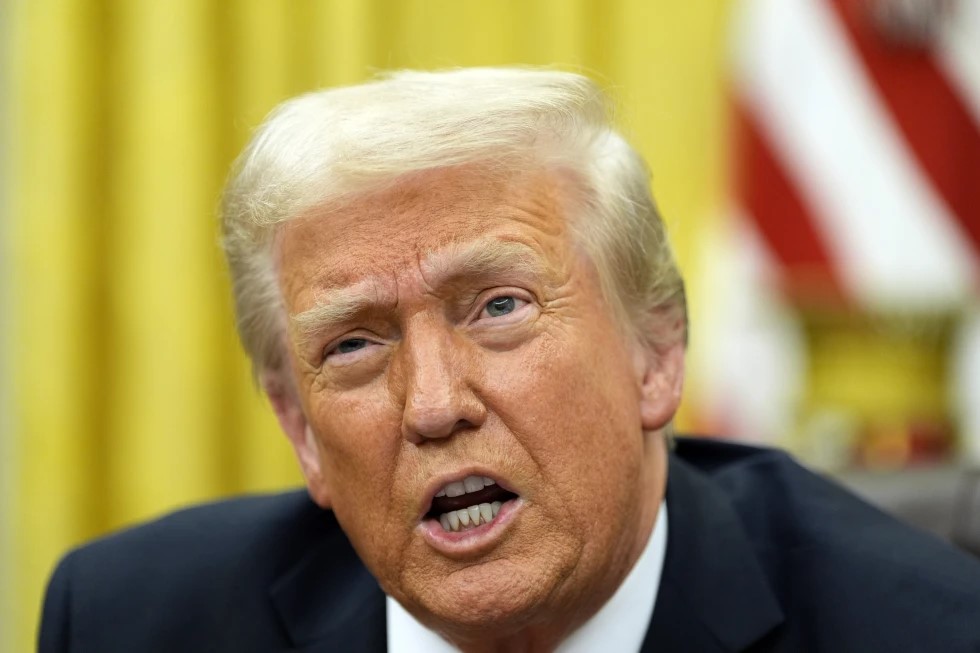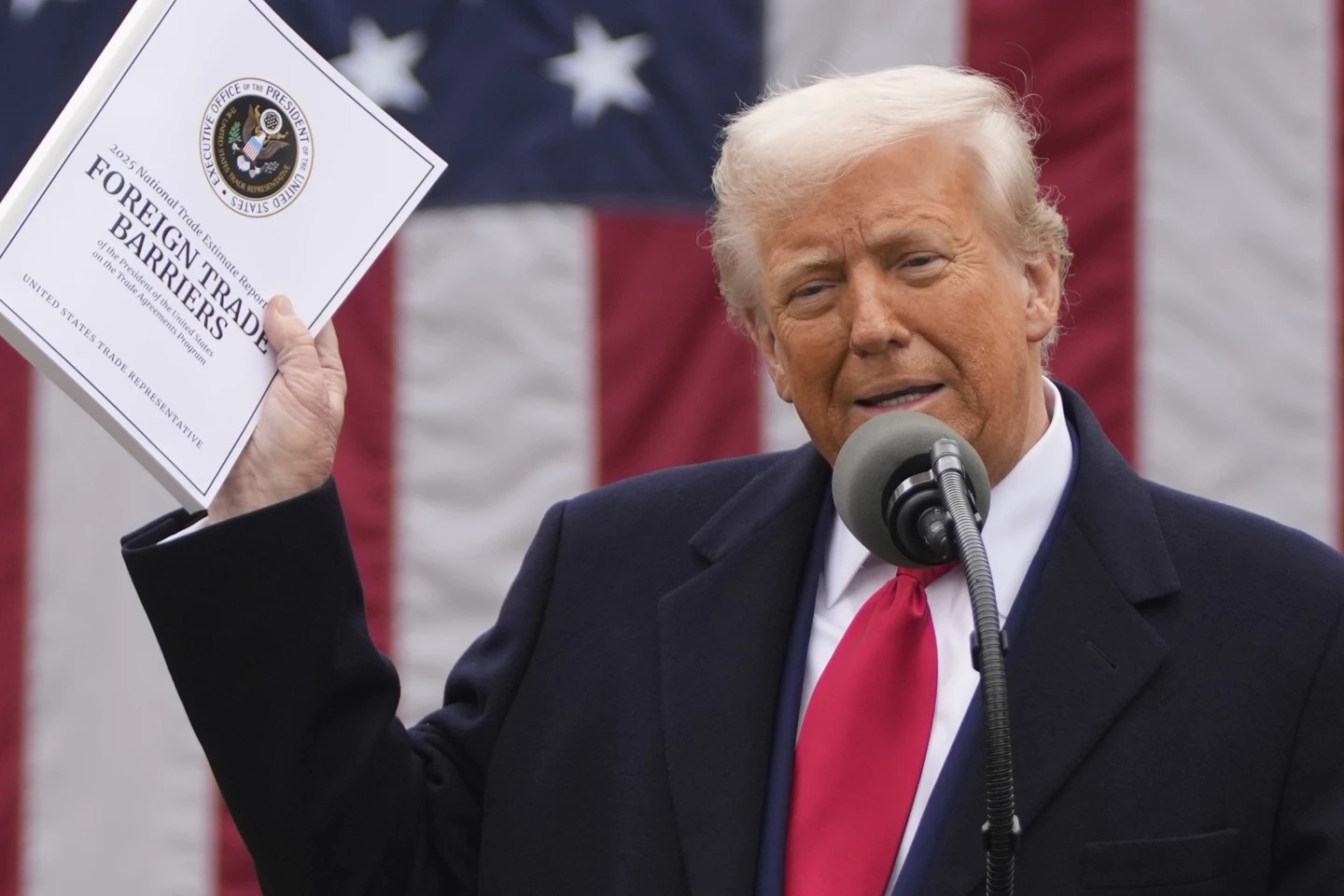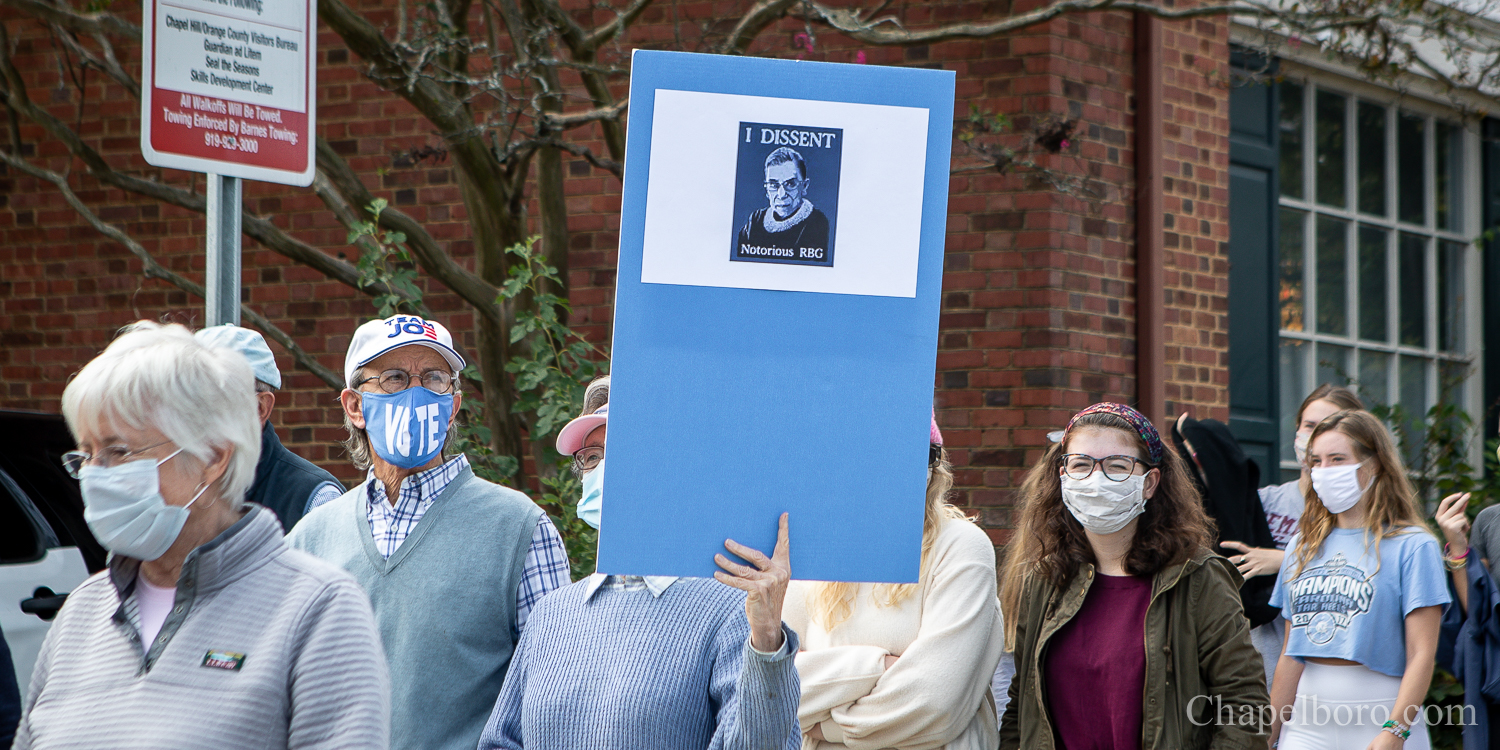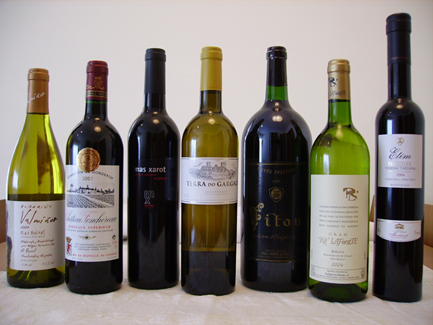A series of proposed tariffs on European goods has the U.S. wine importer and distributor industries nervous about the next year. If enacted this month, the 100 percent increase in taxes on the product would make many European bottles very difficult to sell.
The tariffs were proposed as a response in an escalating tension between President Donald Trump’s administration and the European Union. It began with a 25 percent tariff on certain products from France, Britain, Germany and Spain, including some wines. But in December, during a dispute over subsidies to the airline Airbus, the U.S. Trade Representative proposed new, broader tariffs on many more European goods.
“The tariffs could range anywhere from zero to 100 percent,” says Todd Wielar, the owner of the Chapel Hill Wine Company. “We don’t know what they’re going to do.”
Wielar says his business is already seeing nervousness over whether the penalties will truly be enacted.
“All of my importers have put a hold on any ordering, that’s already an immediate effect,” he says. “For example, I had an order of some wine from Italy that was due to ship in January and the importer told me, ‘It’s not shipping, it’s on hold.’”
Wielar’s company has been in the community since 2002. He says he’s never had to face any challenge like this before in his supplies of European wines. For a company that offers around 200 different wines from European countries, Wielar says such a strong tariff completely stops the import of those options. The tariffs are meant to punish European wine makers, but he says the stronger impact will be felt by those selling the wines stateside.
“With 100 percent tariffs,” says Wielar, “the wines simply become unsellable. These importers, whose sole business is bringing these wines to the United States, are immediately shut down beyond what they currently have in stock. Most importers don’t have more than six to twelve weeks of stock available, so in a matter of months, they’ll have no more wine to sell.”
The wine industry stretches far beyond just buyers and sellers, as well. Wielar says he fears the ripples will create a larger impact than the administration proposing the tariffs realizes.
“Truck drivers are going to lose jobs and the warehouse workers are going to lose jobs,” he says. “I’ve read where people say, ‘The rich people should stop whining because they won’t be able to drink their fancy French wine.’ That’s not what [the tariffs] are about and it isn’t the American consumer [who will suffer.] This is about real people working real jobs who will lose them.”
If passed, the consumers will soon see a clear impact too. While a few wine drinkers may pay a high price for their favorites, Wielar says he believes more will simply change their taste or stop buying from their local shops. It’s partially why he sent a letter out to the Chapel Hill Wine Company mailing list explaining the tariffs and encouraging people to contact representatives in Washington D.C.
“Like a lot of people, you feel a little powerless to what’s going around us,” says Wielar. “I don’t know if this will make any difference at all, but I think it’s important to at least try and let the people in power understand why this is bad policy. Hopefully it’ll resonate that this is something not in the interest of the American people.”
The tariffs have been proposed to go into effect January 14.
Related Stories
‹

How the US-EU Trade Deal Wards Off More Escalation but Will Raise Prices and Slow GrowthWritten by DAVID MCHUGH, SAM McNEIL and SAMUEL PETREQUIN FRANKFURT, Germany (AP) — U.S. President Donald Trump and European Commission President Ursula von der Leyen have announced a sweeping trade deal that imposes 15% tariffs on most European goods, warding off Trump’s threat of a 30% rate if no deal had been reached by Aug. 1. The tariffs, or import taxes, paid […]

The United States and China Are Locked In a Faceoff Over Tariffs. No One Wants To Blink FirstPresident Donald Trump tried to narrow his global trade war into a direct — and risky — faceoff with China, escalating the tariff fight.

Sweeping Trump Tariffs Draw Dismay and Calls for Talks From Countries Around the GlobeSweeping new tariffs announced by U.S. President Donald Trump provoked dismay, threats of countermeasures and urgent calls around the globe.

'We Must Follow Her Clearly to Move This Nation Forward': Chapel Hill Residents Honor GinsburgDozens of Chapel Hill residents gathered at Peace and Justice Plaza Wednesday to honor former U.S. Supreme Court Justice Ruth Bader Ginsburg, who died on Friday at the age of 87. Ginsburg, a women’s rights champion, became the court’s second female justice in 1993. She became known as the unquestioned leader of the Supreme Court’s […]
![]()
The Evening News: Interstate Chase, UNC Policy Change, Basketball WinsThe Hill's Andrew Stuckey presents the evening news. Included in this edition of the news, we learn of a couple of crime stories including a multi-county high-speed chase and a customer fighting off an armed robber at a gas station. We also preview tomorrow's election by checking early voting totals and hearing from Tom Jensen on a missing set of endorsements this cycle. We hear from Chancellor Lee Roberts on a policy change at UNC, and more. In sports, a big weekend for both basketball teams leads into an important march, and more.
![]()
Chapel Hill: Weaver Dairy Road Developments, Black History Recognition, Legion Road UpdateChapel Hill Mayor Jess Anderson spoke with 97.9 The Hill's Andrew Stuckey on Thursday, February 26. She discussed the news of a Barnes and Noble coming to University Place later this year. She also talked about the recent Town Council meeting, which saw a recognition of Black History Month, and approval of a couple of developments on Weaver Dairy Road. She also gave an update on the Legion Road property, and more.
![]()
The Evening News: Barnes and Noble at U-Place, Extending Pedestrian Trails, UNC GymnasticsThe Hill's Andrew Stuckey presents the afternoon news. Included in this edition of the news, we learn of a Barnes and Noble Bookstore coming to University Place. We also hear a story on the future of multi-model paths on Estes Drive Extension. We check the local government meeting schedule and early voting totals, and more. In sports, we hear a Carolina Connection story on the UNC Gymnastics team, check other results from Tuesday, and more.

UPDATE: Man Reported Missing to Chapel Hill Police Found After Short SearchUPDATE: An OC Alerts message shared at 8:51 p.m. said Amit Desai was safely located. The Chapel Hill Police Department is asking for the community’s assistance in locating a missing person. Police officers say 51-year-old Amit Desai was last seen around 4 p.m. Wednesday at the Circle K gas station at the intersection of East […]

Barnes & Noble Bookstore Coming to University Place in 2026The bookstore Barnes & Noble will open at University Place in Chapel Hill later this year, the shopping center said in a release Wednesday. The announcement was made while also detailing four other new businesses at the complex. Three of those businesses have already opened: the SWTHZ fitness center, VEG Emergency Vet and H&H Bagels. […]
![]()
On Air Today: Supporting West Chapel Hill Businesses Through Street ConstructionLapin Blue owner Mike Benson, Baxter Bar and Arcade owner Nick Stroude, and Franklin Real Estate's Sammy Martin spoke with 97.9 The Hill's Andrew Stuckey on Tuesday, February 24. They discussed some of the challenges facing Midway area businesses with recent construction on Rosemary St. They highlighted the appeal of the Midway district's locally owned businesses and "old Chapel Hill" vibe, and more.
›








